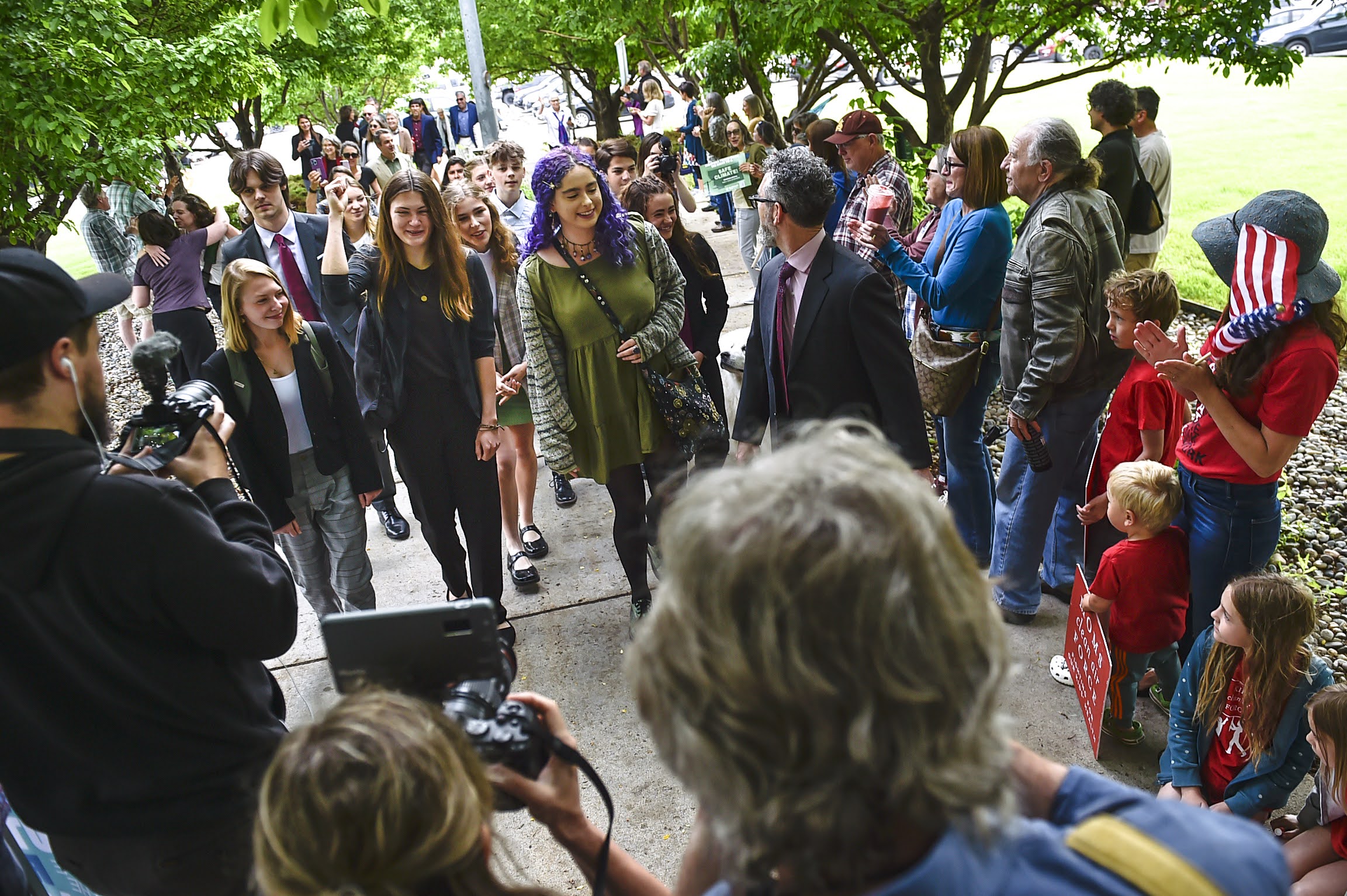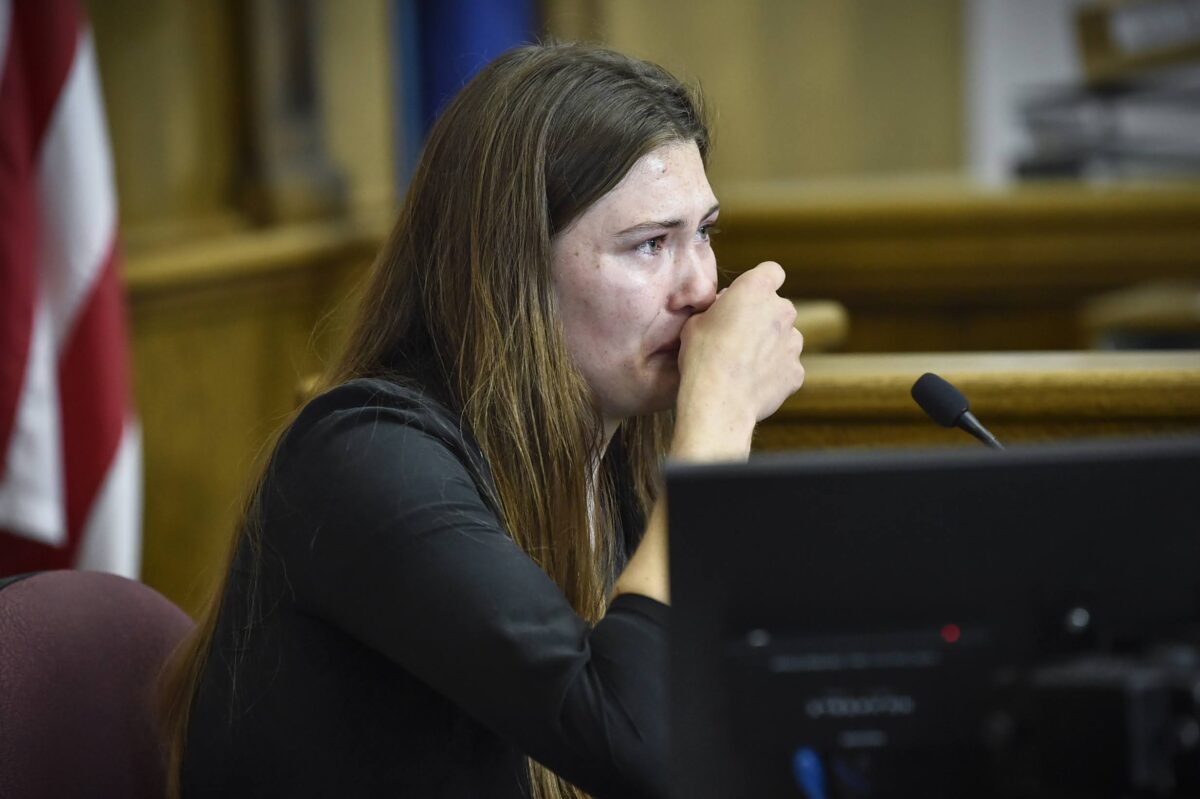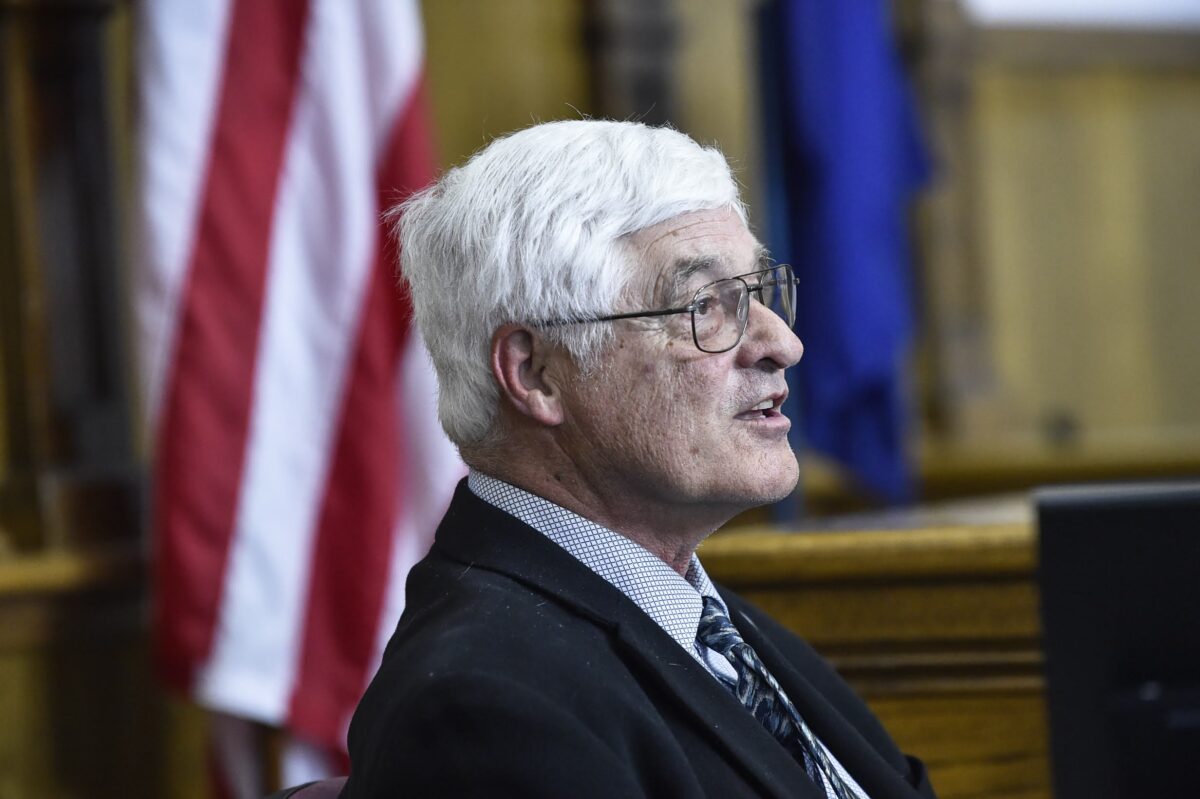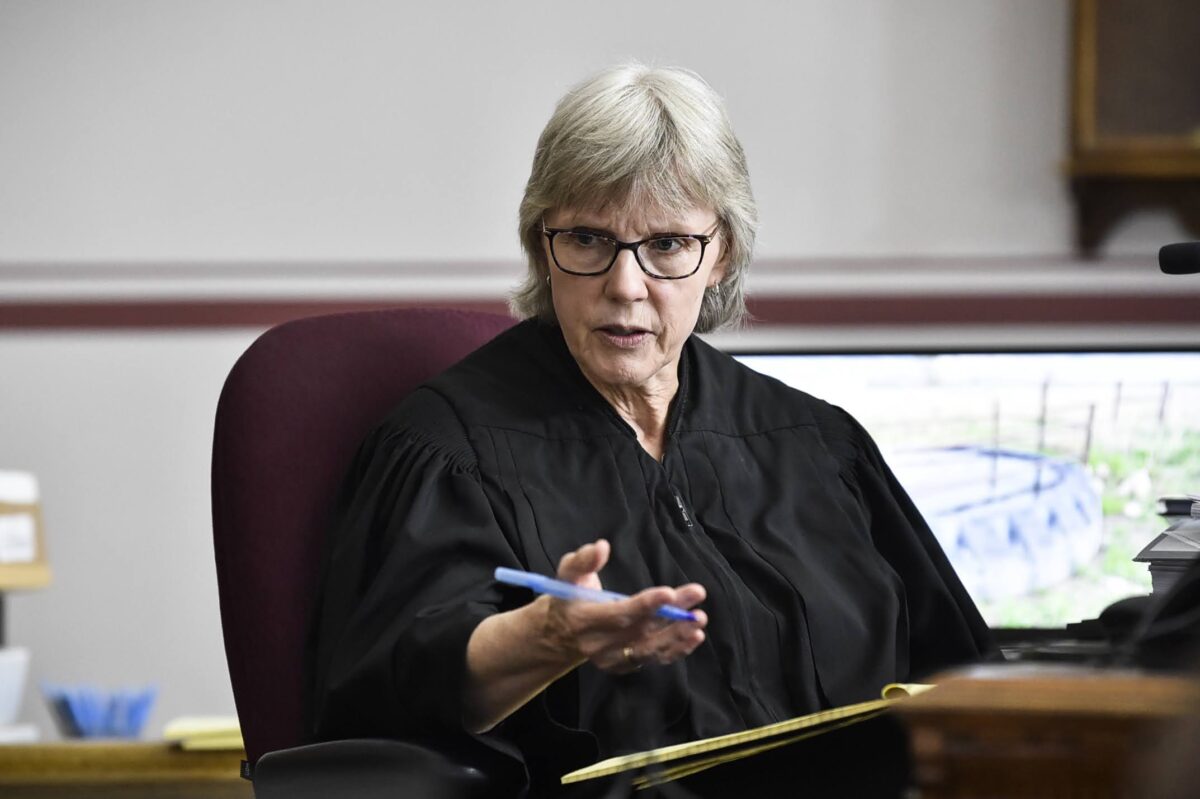Montana Youth Take Climate Change Case to Court
On first day of Montana climate trial, youth plaintiffs testify to hardships of growing up in a warming world as scientists describe scope of crisis
By Micah Drew
HELENA — The opening day of Montana’s youth-led constitutional climate trial featured tearful testimony from the lead plaintiff, Rikki Held, whose firsthand account of how drought, flood and fires shaped her upbringing on the family’s ranch in Broadus gets at the heart of a landmark environmental lawsuit against the state.
Arguing that Montana’s government is dutybound to protect its citizens from the devastating effects of climate change, which it cannot do while also supporting the fossil fuel industry, attorneys representing 16 youth plaintiffs from across Montana outlined their case in broad strokes on Monday, the first day of a proceeding slated to unfold over the next two weeks in Lewis and Clark County District Court in Helena.
While many of the young plaintiffs named in the lawsuit are expected to offer testimony during the potentially landmark environmental bench trial before Judge Kathy Seeley, the curtain-lifter went to Held, who told her version of how the state has violated her constitutional right to “a clean and healthful environment.”
Held said she grew up on a ranch near Broadus, Mont., where the effects of climate change on her ranch included extreme drought, flood events and wildland fires that affected her family’s livelihood. During a particularly catastrophic wildfire season, Held said 70 miles of powerlines were destroyed and her family’s property was left without electricity for a month, which led to the death of several cattle.
“I remember … ash falling from the sky, people from town being evacuated,” she said, choking up with emotion on the witness stand. “It impacts the wellbeing of myself, my family, my community … I see the impacts, I know the science behind it. It’s stressful to see that.”

Held’s testimony followed opening statements as attorneys on both sides established the legal framework for a case that will rest heavily on expert witness testimony as well as that of the youth plaintiffs, and on the constitutional bedrock on which it was engineered. For the plaintiffs, Roger Sullivan introduced the scientific and constitutional experts who will testify but also spent considerable time describing the harm he alleges plaintiffs have suffered due to the state’s unwillingness to mitigate Montana’s contributions to climate change.
Assistant Attorney General Michael Russell didn’t address the question of whether the state or any of its executives has a legal obligation to gird against the causes of climate change, but argued they have no control over greenhouse gas emissions he characterized as “minuscule.” Instead, he said the case amounts to a procedural question about a law that no longer exists — a reference to a bill passed by the Legislature last month rewriting a section of law, the Montana Environmental Policy Act (MEPA), at the heart of the case.
“This case as it currently exists is far more boring than the plaintiffs would make it out to be,” Russell told the court. “It’s simply a challenge to a discreet provision to a purely procedural statute.”
In its current scope, the case focuses on a provision in the MEPA that prohibits state agencies from considering greenhouse gas emissions and climate change impacts while conducting environmental reviews. The lawsuit is the first youth-led lawsuit focused on climate change impacts to reach trial and could provide legal guidelines for similar lawsuits set to go to trial later this year.
Despite recent efforts by the defense to dismiss the case, including an 11th-hour appeal last week to the state Supreme Court, the Held trial opened this morning with a courtroom filled with the plaintiffs and their families, as well as members of the public and dozens of reporters in attendance.
In addition to testimony from Held, the court heard from Mae Nan Ellingson, a delegate to the 1972 Constitutional Convention responsible for including the provision guaranteeing a citizen’s right to a clean and healthful environment.

Ellingson was the youngest delegate to the 1972 convention that rewrote Montana’s constitution. She was the coauthor of the document’s preamble, as well as one of the strongest advocates of articulating a right to a “clean and healthful environment.”
In her testimony, Ellingson described being amazed by the beauty of Montana’s Glacier National Park on her honeymoon, and how it prompted her to move to Missoula to attend the University of Montana in the1960s.
Back then, Ellingson said the air quality in town was so bad that she couldn’t see Mount Sentinel, the iconic prominence that looms over the campus. She began phoning in reports to the local radio station and joined the group Gals Against Smog and Pollution (GASP), signaling her entrée to environmental activism.
Those early experiences, she said, fomented Ellingson’s desire to enshrine environmental protections in the Constitution, which are reflected in the document’s preamble.
“I’m proud of this constitution, I’m particularly proud of the right to a clean and healthful environment and our veery strong bill of rights,” Ellingson told the court. “I support and encourage the young people of our state to be involved in our state.”
Following an afternoon recess, plaintiffs’ attorneys called on Dr. Steven Running, a University of Montana professor emeritus, former NASA scientist and contributor to the United Nations’ Intergovernmental Panel on Climate Change, which was awarded the 2007 Nobel Peace Prize for its work assessing the science of climate change.
Running’s examination by attorney Phil Gregory included a comprehensive overview of climate science stretching back to the late 1800s. The overwhelming scientific consensus through the years, Running said, was that the concentration of carbon dioxide (CO2) in the atmosphere has been exponentially increasing, leading to a warmer climate and greater extreme weather events such as heat waves, floods and wildfires.
“As long as we keep emitting fossil fuels, it will keep getting worse,” Running told the court. “I think Montana, and really anywhere else, needs to stop burning fossil fuels. It’s really quite straight forward.”
The atmospheric concentration of carbon dioxide reached 424 parts per million (ppm), according to a report by the National Oceanic and Atmospheric Administration (NOAA) released last week, which Running cited as one of the largest increases in CO2 levels on record.
“It took 200 million years for the world to generate the fossil fuels — oil, coal gas — and we are digging them up and burning them in 200 years,” Running told the court. “If we don’t stabilize this, it’s hard to know where the planet will be in another century.”

While the science often got “thick” as Running distilled decades’ worth of research into two hours of testimony, he explained to the courtroom how the greenhouse effect traps heat within the atmosphere, increasing both surface temperatures and, to a greater extent, oceanic temperatures. The excess energy trapped within the atmosphere is roughly 360 zetta joules, which Running described as the amount of energy needed to boil off Flathead Lake, the largest freshwater lake west of the Mississippi, 40,000 times over.
At times, attorneys for the defense attempted to exclude portions of Running’s testimony, including referencing the latest IPCC assessment report, and, in a moment of courtroom levity, a paper showing how snowshoe hares’ are affected by changing seasons — the objection that Running was not introduced as an expert in wildlife biology was overruled by Judge Seeley, as Running coauthored the paper.
On cross examination, Mark Stermitz, an attorney for the state, argued that Montana’s carbon dioxide emissions, on a global scale, are not significant enough to make an impact.
Running agreed, though he added that not emitting a ton of CO2 in Montana was just as impactful as not emitting a ton of CO2 anywhere else in the world — and that every action is necessary to restabilize the climate.
“What is been shown in history over and over and over again, is when a significant social movement is needed, it often is started by one or two or three people,” Running responded. “If our state decided to do that, do what you’re hypothesizing, we can’t tell how many other states would decide that’s the right thing to do … The US likes to claim that we’re a leader and this is a kind of issue that maybe we should show some leadership.”
Following Running’s testimony, two young plaintiffs took the stand.
Grace Gibson-Snyder, 19, grew up in Missoula and is currently a student at Yale University. She spoke about her early brushes with environmental activism in high school, including starting a project to reduce single-use plastic in her hometown and joining a service club called Students Against Violating the Environment.
“I think I grew up with climate change as part of my vocabulary,” she said. “I think a lot of my generation has.”
Throughout high school, Gibson-Snyder said she experienced climate change impacts when wildfire smoke obscured the Missoula valley and canceled her high school soccer, as well as during visits to Glacier National Park where she described standing next to the melting Sexton Glacier.
“It was devastating to watch this thing that’s so unique, so special to Montana, so powerful to be next to and know I was watching it go away,” she said.

Outside of the physical manifestations of climate change, Gibson-Snyder said she experiences emotional turmoil about the future — guilt about not doing enough as an individual, uncertainty about whether having her own kids would be moral or ethical given the world’s trajectory, and frustration that the government wasn’t stepping in.
“When [the government] is actively making choices that are shown to harm the people on hand, that’s a betrayal of the people and it’s undermining the role of government,” Gibson-Snyder said. “It is something that needs to be changed.”
The first day of the landmark climate change trial ended with testimony by a third plaintiff, 17-year-old Eva L., who lives in Livingston.
Eva grew up around the Yellowstone River, rafting it each summer and driving across it almost daily with her family to get into town. Last summer, the river flooded, washing out nearby bridges and flooding homes and business from Livingston all the way south to Yellowstone National Park, where the main road into the nation’s first national park was damaged.
Eva described feeling “threatened and attacked” when she saw the destruction wrought by the flood, even as she went to work filling sandbags to keep the water back and taking part in the cleanup efforts when the waters receded.
Asked about what prompted her inclusion as a plaintiff, Eva responded that she felt it was her only option to act.
“I couldn’t vote, I still can’t vote, so doing this is a way of getting my voice out there to be heard,” she said. If the plaintiffs win, she added that “it would be like a light at the end of the tunnel, and just give me a sense that we’re working in the right direction.”
The Held trial resumes Tuesday morning and is expected to last for two weeks.